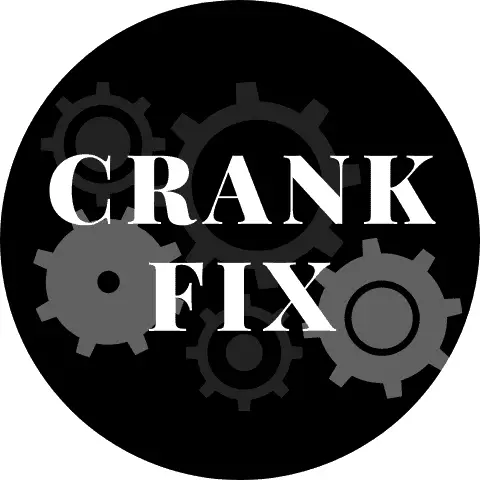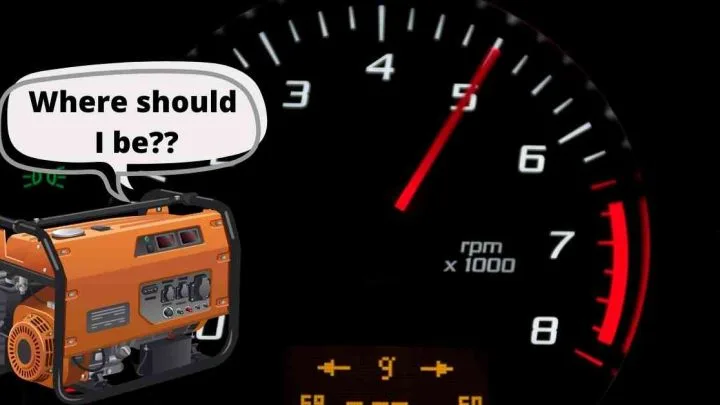One of the critical factors to consider when shopping for a generator is the RPM at which it runs. The RPM dictates how fast the generator’s engine turns and, in turn, how much power the generator produces.
A portable generator should run at 3600 RPM with two poles, giving it a 60 Hz output, and larger generators run at 1800 RPM with four poles, producing 60 Hz. The rotational speed and number of poles determine the output frequency. Picking the right RPM ensures efficiency and prevents premature wear.
In this article, we’ll discuss what RPM is and why it matters when choosing a generator. We will also provide tips on choosing the right RPM for your needs. Buckle up, and let’s dive in.
What Is RPM in a Generator?
RPM stands for revolutions per minute and measures how fast a generator’s engine is running. The RPM determines the power output of a generator, with higher RPMs producing more power than lower RPMs. Additionally, the generator’s RPM dictates how much fuel a generator uses.
A generator running at 3600 RPM will use more fuel than a generator running at 1800 RPM. It’s also noisier and wears out quickly, losing its efficiency over time. Generators with an 1800 RPM use fewer oil gallons and are ideal for longer run times.
Why RPM Matters When Choosing a Generator
When buying a generator, you’ll notice different models have different RPMs. This is because power needs vary from person to person. While some people prefer a generator that produces a lot of power for short periods, others fancy a generator with less power but can run for long periods. A generator’s RPM matters for the following reasons:
Power Output
Generators are a handy tool during power outages or when you need some backup power. They come in handy for camping trips, tailgating parties, and construction sites. The last thing you want is a generator that can’t handle your power needs.
The power output of a generator is dependent on its RPM and torque. As the RPM of the generator increases, so does its power output. This results in higher fuel consumption and more noise.
If you need a generator for occasional power outages or short-term power needs, then a high-powered generator with high RPM is a good choice. However, if you need a generator for long-term power needs, such as RVs or construction sites, a generator with a lower RPM is a better choice.
Fuel Efficiency
Different RPMs will also affect how much fuel your generator uses. A generator running at a higher RPM will use more fuel than a generator running at a lower RPM. This is because, as the RPM of the engine increases, so does the fuel consumption.
A generator with a lower RPM is more fuel-efficient and will save you money in the long run. If you plan on using your generator frequently, then a fuel-efficient generator is a wise choice (source).
Noise Level
If you’ve ever been around a generator, you know that it can be pretty noisy. The noise level of a generator is directly related to its RPM. A generator running at a high RPM will be much louder than one running at a lower RPM.
As the shaft speed of the engine increases, so does the noise level. If you need a generator for indoor use or quiet outdoor events such as weddings or camping, then you’ll want a generator with a low noise level. Additionally, low RPM generators run cooler and are less likely to overheat.
Difference Between 1800 and 3600 RPM
Most generators in the USA run at 1800 or 3600 RPM. The main difference between these two speeds is the design of the generator and the alternator they use.
1800 RPM generators usually have four poles in the alternator, while 3600 RPM generators have two poles. This means that 1800 RPM generators run slower to produce the same power output as a 3600 RPM generator.
An 1800 RPM generator is larger and heavier than its 3600 RPM counterpart because of the extra poles in the alternator. This makes 1800 RPM generators more expensive than 3600 RPM generators.
In terms of fuel efficiency, 1800 RPM generators are more fuel-efficient than 3600 RPM generators. This is because they use less fuel to produce the same amount of power. 1800 RPM generators also have a longer lifespan since they run cooler and don’t wear out as quickly.
Since 1800 RPM generators are designed to produce less power for longer periods, they’re ideal for long-term power needs such as for RVs and tailgating parties. 3600 RPM generators produce high power for short periods of time and are suitable for power outages and construction sites.
How To Choose the Right RPM for Your Generator
Choosing the correct RPM for your generator is critical to getting the most out of your investment. If you don’t have the right RPM, your generator could overheat and damage itself. The wrong RPM could cause your generator to be less fuel-efficient and vulnerable to wear and tear. Here are a few factors to consider when choosing the right RPM for your generator.
Your Power Needs
The first thing to consider is your power needs. How much power do you need to generate? Do you need a generator for occasional power outages or for long-term power needs?
A high RPM generator is a good choice if you need a generator for occasional power outages. However, if you need a generator for long-term power needs, a lower RPM generator is better.
Your Budget
Different RPMs come with varying price points. A generator with a lower RPM will be more expensive than a generator with a higher RPM. Low RPM generators are more fuel-efficient, hence the high upfront costs.
While high RPM generators are less expensive upfront, they cost more in fuel in the long run. Choose the RPM that fits your budget and your power needs.
Final Thoughts
A generator’s RPM plays a significant role in its overall performance. Most portable generators run at 3600 RPM, while larger generators run at 1800 RPM. The RPM determines the generator’s power output, fuel efficiency, and lifespan.
When choosing an RPM for your generator, consider your power needs and budget. When in doubt, consult a professional. They have the experience and knowledge to help you choose the right RPM for your generator.
Recommended Reading

